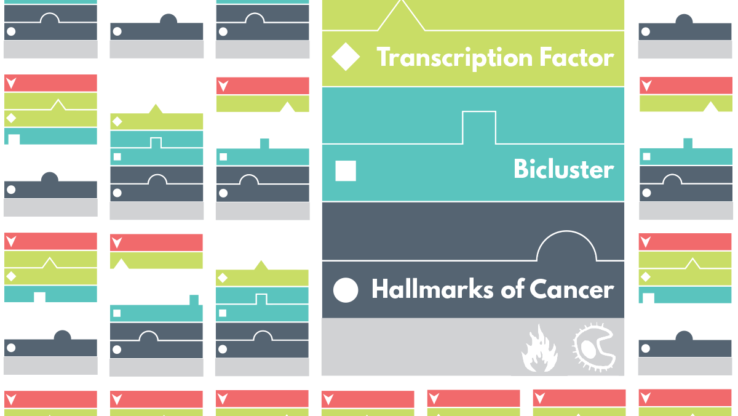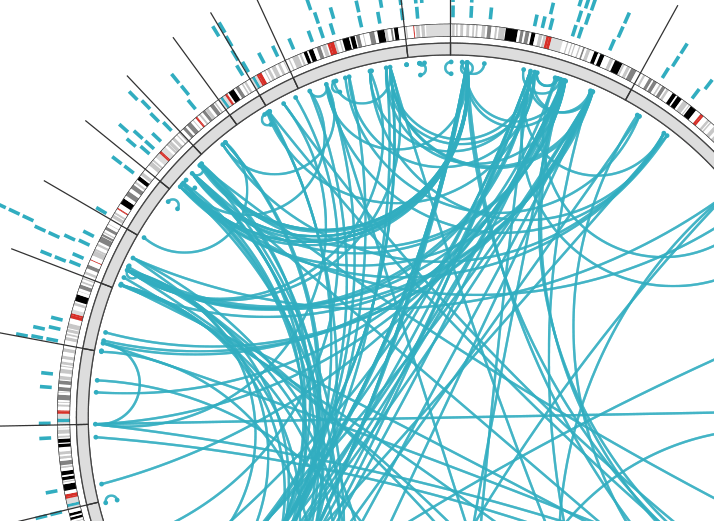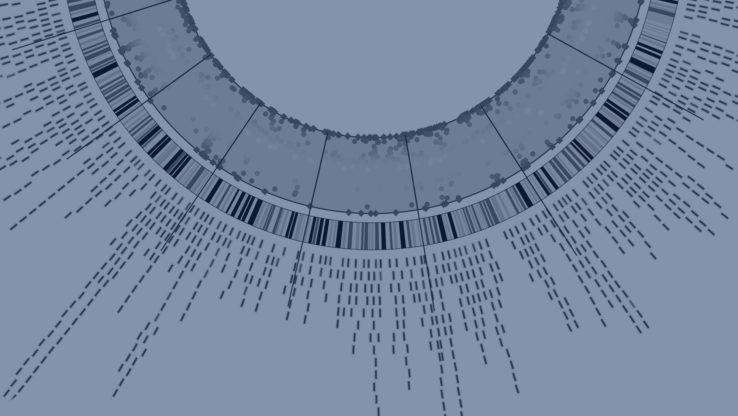
Cancers
Cancer research poses many interconnected complexities related to early detection, stratification and treatment. The cross-disciplinary holistic, integrative nature of systems biology makes ISB researchers well suited to tackle the complexity of these diseases.

TCGA Researchers Identify Potential Drug Targets for Leading Form of Deadly Liver Cancer
ISB researchers and colleagues from TCGA Research Network performed the first large-scale, multi-platform analysis of hepatocellular carcinoma, the predominant form of liver cancer. Such integrated analyses enabled the identification of potential therapeutic targets and facilitated biological insights that would not have been possible otherwise.

A Cell-Surface Membrane Protein Signature for Glioblastoma
Using integrated protein and gene expression data, ISB researchers developed a 33-gene signature for glioblastoma, an aggressive form of brain cancer.

Novel clustering algorithm identifies functional mutations in cancer genes
In a study published in PLoS Computational Biology, researchers at Institute for Systems Biology (ISB) have developed a multiscale mutation clustering algorithm (M2C) that identifies variable length regions with high mutation density in cancer genes.

Stitching Together Insight For Deadly Brain Cancer Glioblastoma
Using data from TCGA and ENCODE, ISB researchers developed an integrative database and analysis platform that provides insight into the underpinnings of glioblastoma multiforme, and identified a never before seen association between increased levels of immune molecules, tumor immune cell infiltration, and decreased patient survival.

Integrative Study of Rare Adrenocortical Carcinoma Reveals Prognostic Molecular Subtypes
Adrenocortical carcinoma (ACC) is a rare endocrine cancer with limited therapeutic options and overall poor outcome. In TCGA (The Cancer Genome Atlas) research published on May 9, 2016, in the journal Cancer Cell, scientists, including several from Institute for Systems Biology, comprehensively analyzed 91 ACC specimens from four continents using state-of-the-art genomic technologies and computational methods. The goal of the study was to identify additional oncogenic alterations to provide a framework for further research and guide development of therapies.

Prostate Cancer Study Identifies Numerous Subtypes of the Disease
Prostate cancer is the second most common cancer in men worldwide. The clinical behavior of prostate cancer is variable with some men exhibiting indolent prostate cancer which can be monitored over time while other men develop aggressive prostate cancer which can lead to metastasis and death.

A Multilevel Pan-cancer Map Links Gene Mutations to Cancer Hallmarks
In the scientific community, cancer is not considered a single disease but a multitude of diseases. Different genes and molecular pathways have been associated with different types of cancer. These differences at the molecular level are being leveraged to enable personalized treatment regimes for cancer patients.

Cancer Genomics Cloud
The ISB Cancer Genomics Cloud:
Leveraging Google Cloud Platform for TCGA Analysis
The ISB Cancer Genomics Cloud (ISB-CGC) is one of three pilot projects funded by the National Cancer Institute with the goal of democratizing access to the TCGA data by substantially lowering the barriers to accessing and computing over this rich dataset. The ISB-CGC is a cloud-based platform that will serve as a large-scale data repository for TCGA data, while also providing the computational infrastructure and interactive exploratory tools necessary to carry out cancer genomics research at unprecedented scales. The ISB-CGC will also facilitate collaborative research by allowing scientists to share data, analyses, and insights in a cloud environment.



